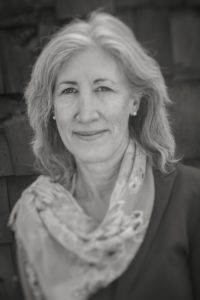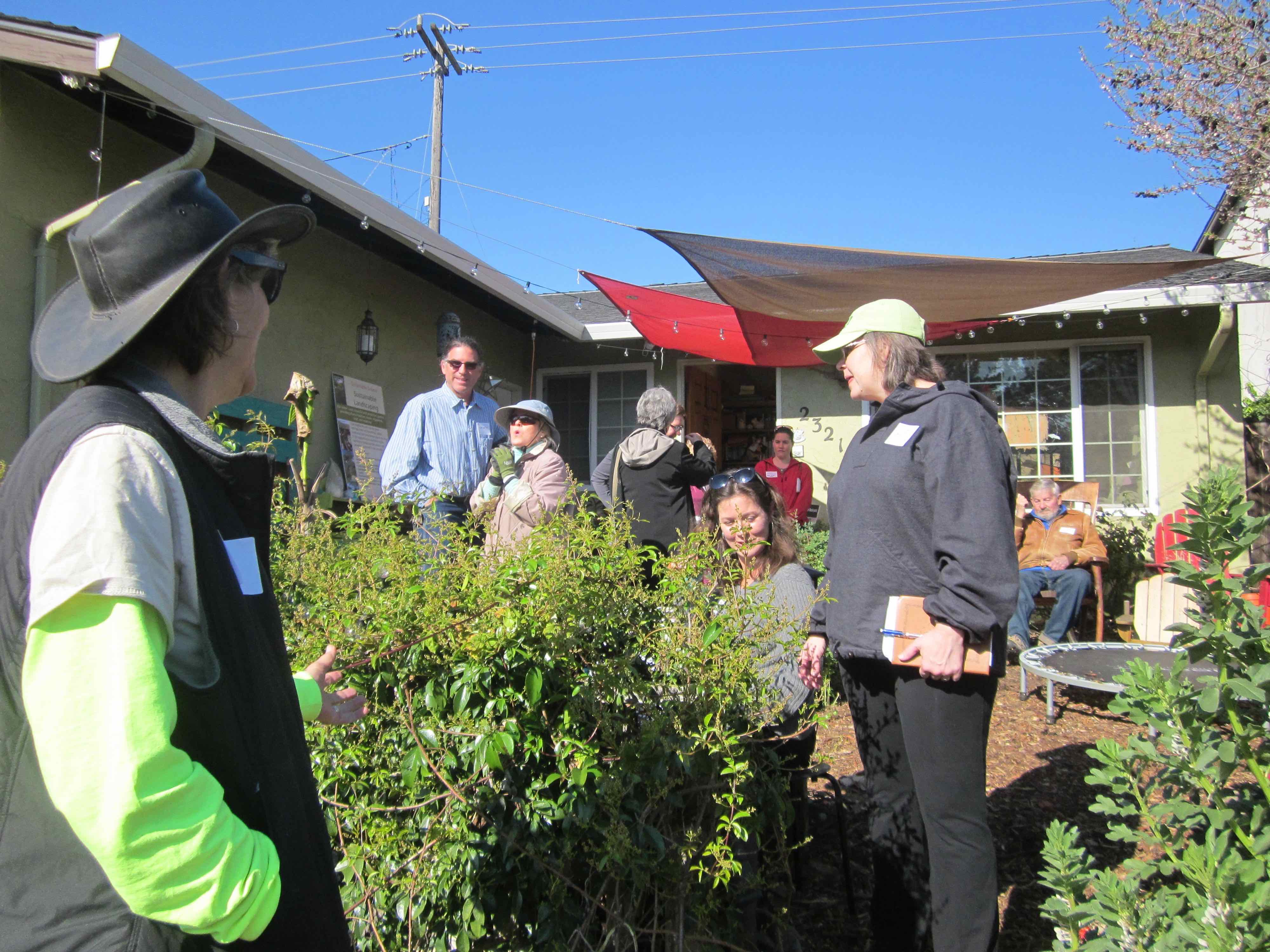4th Annual Demonstration Food Forest Tour a Reimagined Success
By Nicole Newell, Sustainable Landscaping Program Manager

Permaculture expert John Valenzuela shows the roof water outlet at Living & Learning garden in Benicia during the video tour
Our 4th Annual Demonstration Food Forest garden tour was very different this year, but still brought people together in new ways around the concepts of permaculture and creating waterwise, edible gardens. Permaculture expert John Valenzuela gave a talk over Zoom to nearly 100 people that included a Q&A session and a pre-recorded video tour with John in one of our 27 demonstration food forest gardens.
What also made this year unique was it opened up the opportunity for people from all over the country to be able to attend, even people from the UK and Canada! It was comforting to see all of the familiar faces and exciting to see new people as we are all adjusting to this new way of interacting through video conferencing.
We had to rethink the annual tour this year due to the pandemic and social distancing. The big vision is a community day of local people gathering to tour the gardens, get to know each other and learn about permaculture concepts that can be applied to their landscapes. The original plan was to begin the tour at Avant Garden in Benicia with John’s talk and then 14 demonstration food forest gardens would be open in Benicia and Vallejo for a self-guided tour. These gardens are open annually to educate the community on how to create beautiful and productive gardens that build healthy soil and use water wisely.
Knowing we needed to bring the tour to life in a new way this year, our Sustainable Solano team got into solution mindset. We found David Avery, a videographer that made the video of John touring Living & Learning food forest in Benicia. Then on April 25, John gave his live talk over Zoom and answered many questions on plants and fruit trees. For those who couldn’t make the live event, you can view the talk and Q&A in the video below.
View the Living & Learning tour video below.
Stay tuned for more! In May, we will record Lydia Neilsen touring The Ripple Effect and The Enchanted Cottage garden in Vallejo. At a later date, Lydia will present her Rehydrate the Earth talk in a live Zoom call. We are also creating a series of short videos on the elements that go into creating your own food forest garden. To stay on top of the latest, subscribe to our newsletter here.




